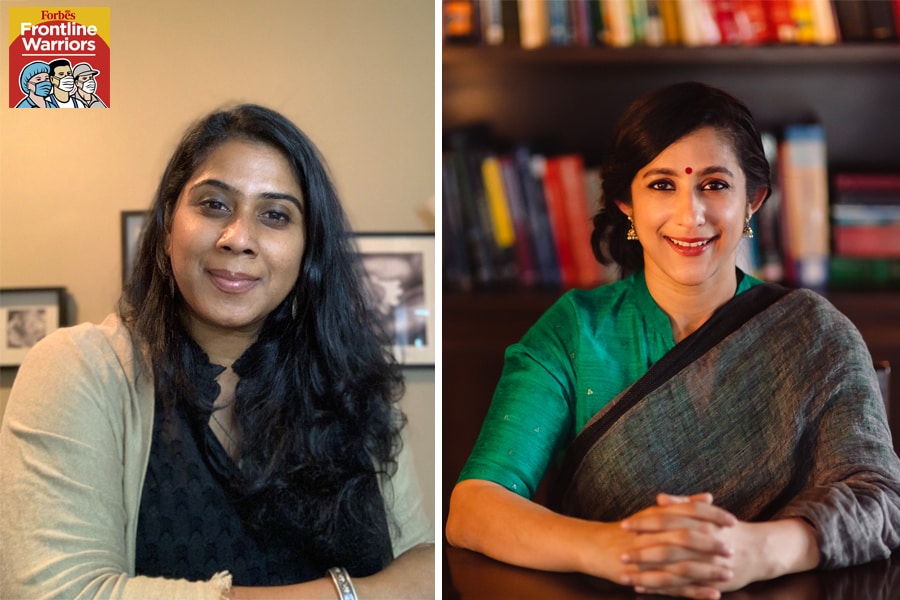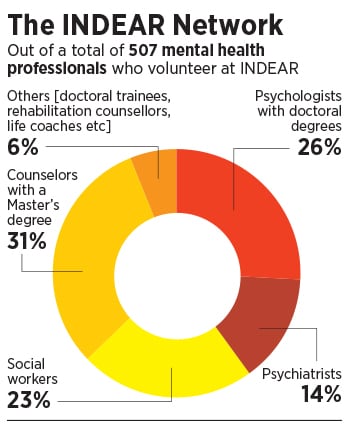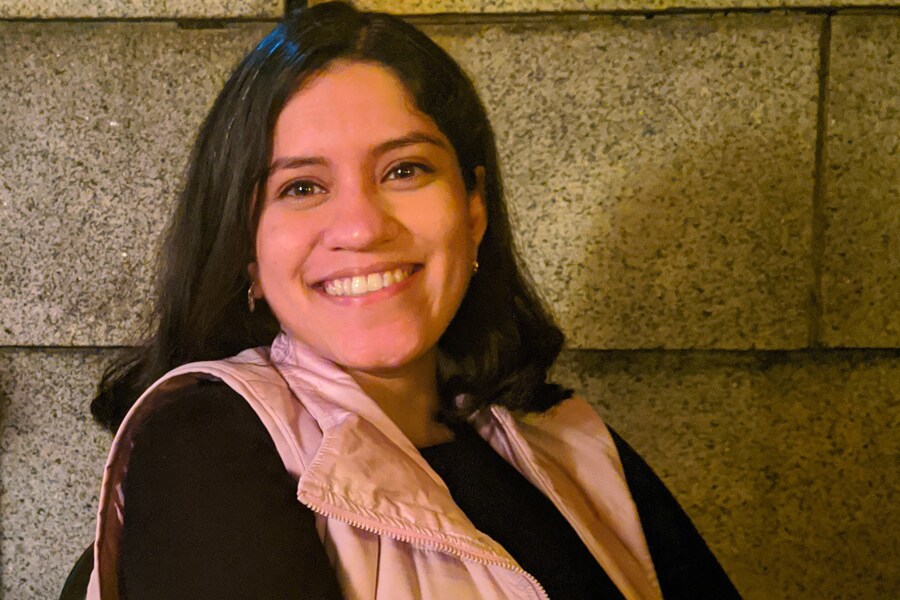
An army to help doctors, frontline workers process the trauma of Covid-19
Dr Radhika Bapat and Dr Uma C Millner have brought together a network of 500-plus mental health professionals and social workers under the Indian Network of the Diaspora for Essential Aid and Relief (INDEAR) to provide mental health assistance to people fighting on the frontlines of the pandemic
 Dr Uma C Millner and Dr Radhika Bapat created INDEAR, a network of 500-plus mental health professionals to provide mental health assistance to those fighting on the frontlines of the pandemic
Dr Uma C Millner and Dr Radhika Bapat created INDEAR, a network of 500-plus mental health professionals to provide mental health assistance to those fighting on the frontlines of the pandemic
Dr Radhika Bapat, a clinical psychologist in Pune, was feeling overwhelmed. It was late March, and the second wave of Covid-19 was gripping India, when she started reserving Tuesdays to help her peers deal with the trauma and stress of being on the frontline of the pandemic.
Before she realised, other therapists, doctors and professionals, who were handholding patients through the pandemic, flooded her appointment schedule. The response from the medical community, and the stories they were telling, had engulfed Bapat’s life. An idea that started out of curiosity to understand how her colleagues were coping, soon became a mission where Bapat was burning out quicker than she anticipated.
Soon, the therapy requests were not only from doctors, but also from frontline workers across the hierarchy of the health care system.
"The emails kept coming. I still have 120 more unopened DMs [Instagram direct messages] in my inbox. Many of them are therapists who are seeking help for themselves. They were everybody. People who call themselves, you know, mamas and mavshis—hospital support staff—are all going through compassion fatigue," recalls Bapat.
"There were staff who confessed that they [Covid-19 patients] had become just numbers (a statistic) and doctors were unfairly pushed to make choices they did not want to. Doctors shared 'we feel guilty that we cannot officially come out and say that we are having these infrastructural hurdles because if we do, then that means we are making choices about who gets oxygen and who doesn't, when in reality we too are victims of the system.’ There are these compendia of issues that became what we call in Marathi a 'gunta' [mess],” she adds.





 Deepti Kumra, a behavioural treatment services clinician and a volunteer with INDEAR, has been managing the session coordination
Deepti Kumra, a behavioural treatment services clinician and a volunteer with INDEAR, has been managing the session coordination



